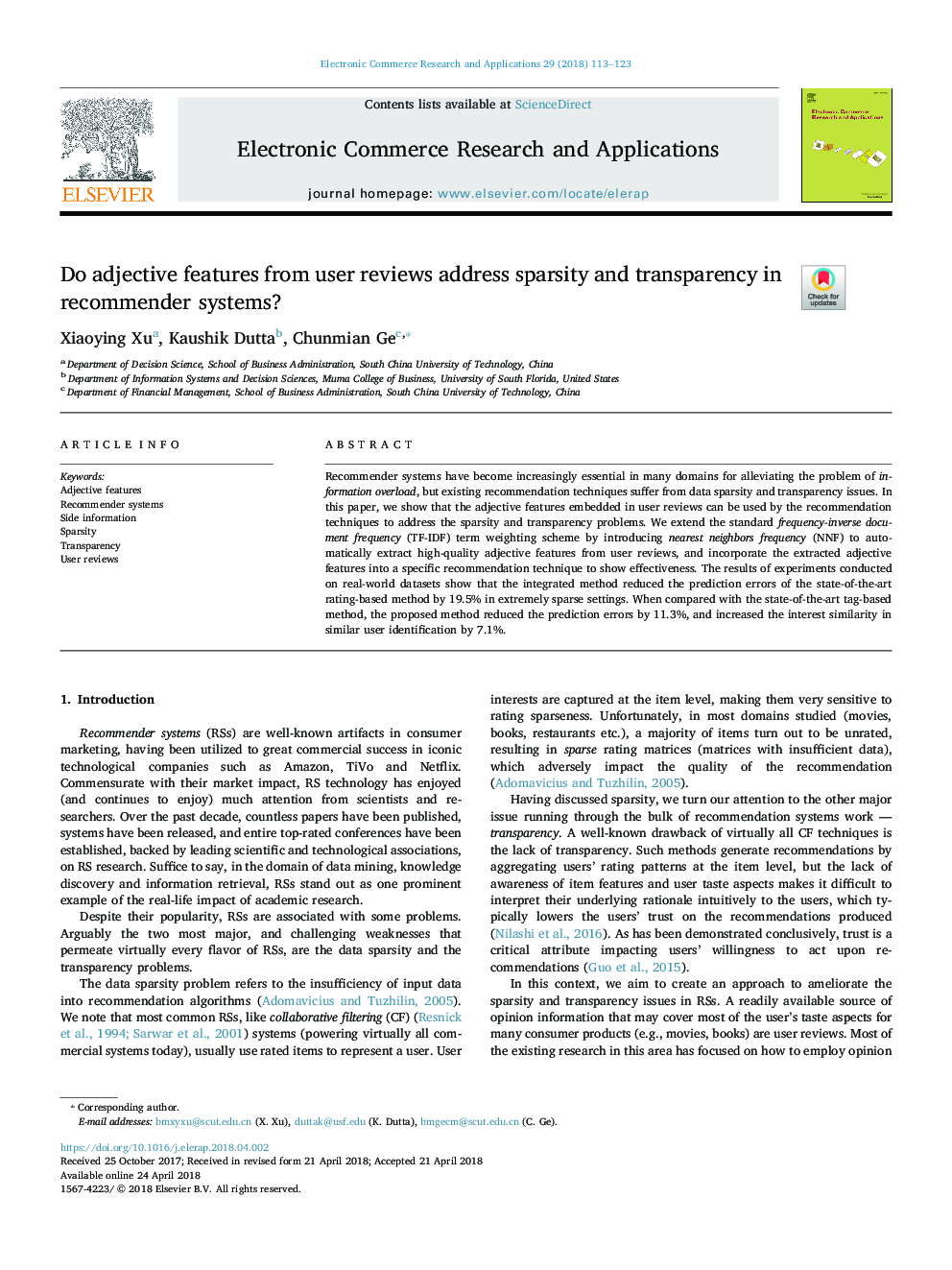| Article ID | Journal | Published Year | Pages | File Type |
|---|---|---|---|---|
| 6854029 | Electronic Commerce Research and Applications | 2018 | 11 Pages |
Abstract
Recommender systems have become increasingly essential in many domains for alleviating the problem of information overload, but existing recommendation techniques suffer from data sparsity and transparency issues. In this paper, we show that the adjective features embedded in user reviews can be used by the recommendation techniques to address the sparsity and transparency problems. We extend the standard frequency-inverse document frequency (TF-IDF) term weighting scheme by introducing nearest neighbors frequency (NNF) to automatically extract high-quality adjective features from user reviews, and incorporate the extracted adjective features into a specific recommendation technique to show effectiveness. The results of experiments conducted on real-world datasets show that the integrated method reduced the prediction errors of the state-of-the-art rating-based method by 19.5% in extremely sparse settings. When compared with the state-of-the-art tag-based method, the proposed method reduced the prediction errors by 11.3%, and increased the interest similarity in similar user identification by 7.1%.
Related Topics
Physical Sciences and Engineering
Computer Science
Artificial Intelligence
Authors
Xiaoying Xu, Kaushik Dutta, Chunmian Ge,
